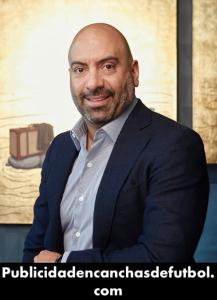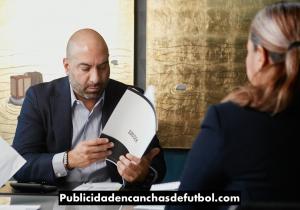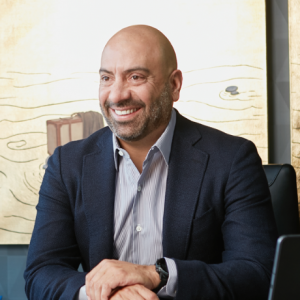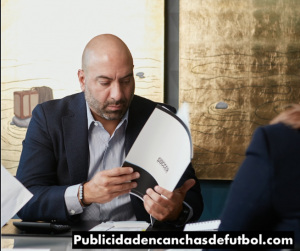Jose Eshkenazi Smeke: The best rivalry in sports marketing before Cristiano and Messi was Karpov vs. Kasparov
Jose Eshkenazi Smeke: The best rivalry in sports marketing before Cristiano and Messi was Karpov vs. Kasparov
The origins of the rivalry.
Anatoly Karpov Tolia, born on May 23, 1951, in the city of Zlatoust, would be the first son of a humble family of workers, during his youth he graduated as an economist at the University of Moscow, and as a member of the Communist Party he was part of the Soviet Parliament and president of the Soviet Fund for Peace, Karpov represented the ideal citizen that the regime intended. The young economist would be the USSR's chosen one to regain the title and demonstrate Soviet hegemony in the so-called intellectuals' sport.
"Karpov's career would begin after the fall of the Soviet champion Spassky to the American Bobby Fischer. After problems of the organization with Fischer's increasingly eccentric demands, the American would be stripped of the title, thus Karpov was crowned as world champion, and for more than ten long years (1975-1985) the title of the best chess player in the world was his property." recalls Jose Eshkenazi Smeke.
Karpov would successfully defend his title twice (1978 and 1981) against the same opponent, the Swiss-based Soviet defector Viktor Korchnoi. In total, the native of Zlatoust was undisputed world No. 1 for a whole decade. In total, his extensive list of achievements included almost 150 international tournaments.
Harry Weinstein, born on April 13, 1963, in the city of Baku, present-day Azerbaijan, was the first son of Kim Weinstein (a Jewish engineer) and Clara Shagenovna (an Armenian engineer). After the death of his father and head of the family in 1971, young Harry was left in the care of his mother, who put aside her career specializing in arms production to devote herself exclusively to her son's education. From an early age, the first-born of the Weinstein family would show a talent out of the ordinary, this talent would take him to be part of the chess academy of the Palace of the Pioneers of Baku when he was only 11 years old. Due to the fact that anti-Semitism was still very present in the Soviet society of that time, his mother decided to adapt the name of her son taking the surname of his maternal grandfather, in this way Harry Weinstein would be known as Garry Kasparov. The talent of the young prodigy would quickly attract the attention of the experts who gave him a scholarship to study in Moscow with Mikhail Botvinnik, the so-called father of Soviet chess. By the time Kasparov turned 18, he was already the reigning world junior champion and the youngest player to achieve the title of grandmaster. At the age of 20, the young talent was already considered a serious threat to the historic reign of the veteran Karpov.
The rise, scandal and the longest game in history.
The first world championship match between the two would take place in 1984 in Moscow. The first match for the world championship was agreed to six wins where draws did not count. After 9 games Karpov won by 4 to 0, but to add another victory he had to wait until game 27, where the score was 5 to 0. During game 31, Karpov would have the opportunity to seal the world victory, but after a blunder, Kasparov managed to come from behind to achieve his first victory. If Karpov had not made such a mistake, the history of chess would be completely different.
The games went by and the year 1985 had already begun, Karpov was exhausted, but only one point away from glory, while Kasparov developed a more aggressive strategy. After 48 long games, Kasparov managed to make the score 5 to 3.
Surprisingly, in February 1985, the match was suspended and cancelled, alleging fatigue on the part of both competitors, which provoked the beginning of a controversy that seemed to have no end in sight,
The rivalry would live its peak when the 1984 game would be followed by 4 other games that would find the desired outcome until November 1990. Anatoli Karpov and Garri Kimovich Kasparov faced each other face to face for another 5 historical episodes where they would share in front of the same board for a total of more than 700 hours, 5581 moves and 144 games. After long years, controversies and numerous disputes on and off the boards, the final result finally crowned the so-called "son of change" Garri Kasparov as the winner. The incredible final score ended up reflecting the parity of their abilities and enormous talents. The numbers would show that Kasparov won 21 matches, to Karpov's 19 victories and an impressive 104 draws.
"In the end, the difference over six years was only two games. The longest duel in chess history would attract more than 300 journalists from 70 different countries, as well as a total of 200 million TV viewers, record figures for the sport. Everyone wanted to see the longest match of all time," said Jose Eshkenazi Smeke, director of Social Media Solutions.
The only tangible conflict between the two rivals took place in the final match of 1990, when Kasparov flatly refused to participate under the Soviet flag, demanding to do so with the colors of the Russian Federation. The lack of an agreement would lead to the championship being played for the only time in history without flags or colors. With the end of the long match, the golden age of chess would come to an end, marking a before and after in the sport.
After his retirement from the boards, Kasparov entered the world of politics, creating the party "Another Russia". This decision, as well as repeated criticisms to the government of President Vladimir Putin, would lead him to prison. Kasparov was in total abandonment during those years and only a friend pressured the authorities to try to see him. It was Karpov.
"I feel I am indebted to him, not only for his attitude of going to jail, but also for having created me. It's just that without Karpov there would never have been Kasparov."
Sharon Turner
Lideres Empresariales
email us here
Visit us on social media:
Facebook
Twitter
Other
Jose Eshkenazi Smeke Líder Publicista y Director de soccer Media Solutions
Legal Disclaimer:
EIN Presswire provides this news content "as is" without warranty of any kind. We do not accept any responsibility or liability for the accuracy, content, images, videos, licenses, completeness, legality, or reliability of the information contained in this article. If you have any complaints or copyright issues related to this article, kindly contact the author above.





